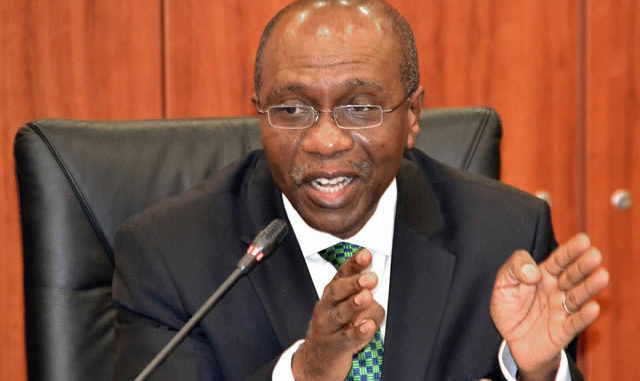
By Femi Asu
The nation’s foreign exchange reserves have increased by $595m to hit a one-month high of $26.196bn, the latest data from the Central Bank of Nigeria have shown.
This came on Monday just as the naira traded around 412- 413 against the United States dollar at the parallel market, compared to 414/dollar on Sunday.
External reserves stood at $25.6bn as of August 24, down from $26.21bn on July 28, the CBN data showed.
The reserves declined from $26bn on August 4, 2016 to $25.97bn on August 5 as the CBN stepped up dollar sales to boost liquidity at the interbank market and support the ailing naira.
The central bank has been selling dollars regularly at the interbank market to prop up the naira since it floated it on June 20. The currency touched an all-time low of 365.25 per dollar on August 18 at the official market.
In June and July, the reserves hovered between $26.3 and $26.4bn, but fell to $26.12bn on August 1.
The reserves had stood at $26.4bn between May 24 and 27, after dropping to $26.5bn from $26.6bn the same month.
Between May 31 and June 7, the external reserves stood at $26.3bn, before rising back to the $26.4bn mark on June 8, a level it maintained up until June 24. On June 27, it fell back to $26.36bn.
The CBN had in June lifted its 16-month-old currency controls and auctioned about $4bn on the spot and futures market to clear a backlog of dollar demand to help boost interbank market trading.
The reserves had dropped by over 10 per cent from last year when they closed at $29.7bn.
The Head of Research and Investment Advisory at SCM Capital Limited, Mr. Sewa Wusu, said several factors could lead to the increase in the external reserves.
He said, “The increase in international crude oil prices penultimate week on the heels of production freeze expectations from OPEC may have raised the external reserves position. Although we are currently witnessing production cut due to the militants’ vandalism, the lag effect of this crude price increases may have raised the reserves.”
He said another major factor that could have brought about the increase in external reserves was foreign investment.
Wusu said, “It is a positive development for the reserves to have risen back to $26bn. So, if that momentum can be sustained, then I think that will augur well for the country. But you know that the CBN will keep intervening [in the interbank market] to fund forex demand.”
He noted that the Federal Government had been receiving some bashing in recent days, with calls for it to do something about the economy and attract foreign direct investment.
“So, I think government is also doing something and that will help the economy,” Wusu said.
A currency analyst at Ecobank, Mr. Kunle Ezun, attributed the increase in reserves to the reported inflows into the country from foreign portfolio investors.
He said, “What the FPI wants is to see a liquid forex market, which is one of the criteria cited for them to come in. Once the market is liquid and they see liquidity in the pricing and the yield of the Nigerian bond is attractive enough, we should begin to see some traction in the market that will help to boost reserves.”
But the Chief Executive Officer, Cowry Asset Management Limited, Mr. Johnson Chukwu, described the increase as temporary, saying it represented what came in and had not been distributed.
The global plunge in oil prices has caused the persistent depletion of the nation’s foreign reserves. The development also forced the CBN to introduce foreign exchange controls, which were abandoned in June.
Meanwhile the naira fell by 1.23 per cent on Monday at the interbank market to close at 318.83 to the dollar, according to FMDQ OTC Securities Exchange.
The scarcity of foreign exchange in the country had continued to put pressure on the naira at both official and unofficial markets.
The CBN had last week banned nine commercial banks from the forex market for failing to remit the Nigerian National Petroleum Corporation’s $2.334bn into the Treasury Single Account in line with President Muhammadu Buhari’s directive last September.
– PUNCH
